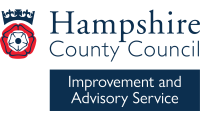Primary Summer Term Planning and Problem of the Week
The HIAS maths team have put together an overview of maths units for the summer term which would enable children to engage in some mathematical thinking across all the domains in the mathematics curriculum. The areas of mathematics suggested are those which children would find easiest to access independently while at home. Each unit has some of the national curriculum statements for that domain but does not include all the statements. The overview and the linked documents are intended to support teacher’s in their choices of tasks for home learning over the coming weeks.
For each unit of work we will provide some examples of a problem for the unit, giving a ‘model’ answer for the task and then similar tasks for further practise with answers. We have pitched the tasks so that the majority of pupils in that year group would be able to access the task with minimal adult support. It will be important for teachers to adapt tasks for the range of learners they are supporting. The tasks chosen are aimed at revisiting prior learning rather than attempting to support new learning.
We welcome feedback on these resources.
Further tips
- Encourage pupils to work on a mathematics activity/
reasoning every day.
- Keep number fluency as a regular activity eg counting,
learning number bonds, tables facts, key facts about measurement (money, length
etc), learning to tell the time
- Encourage the use of objects found around the house, eg
buttons, counters from board games, where appropriate to support a CPA approach
- Provide ‘model’ answers for solving problems and
calculations encouraging a CPA approach to representing mathematical thinking
for all pupils, eg drawing pictures and diagrams, use of part part whole
diagrams etc alongside more formal notation and methods
- Encourage parents and older siblings to support children by
praising them for working hard and not giving up
- Encourage parents and older siblings to see mistakes as a
natural part of learning and an opportunity to learn something
- Encourage pupils to talk through their solutions with
parents and older siblings
- Where appropriate, use a web link reference as support for a
task
- Make use of the opportunities for thinking mathematically in
everyday activities with the whole, family eg baking and making family
meals, playing board games, playing outside, making things with paper and card,
working on jigsaw puzzles and puzzles, using TV listings to work out how long
before a programme begins and how long it lasts/ what time it will finish.
- Make use of Counting books, particularly for young children
- Avoid worksheet overload where possible
